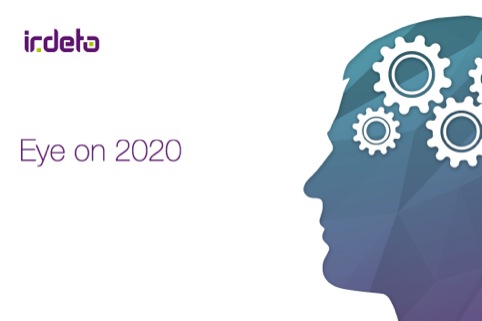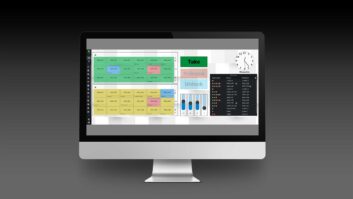
Irdeto has launched its Eye on 2020 report, a series of predictions over the next five years covering trends that will impact the broadcast and content industries, including the connected home, piracy, platform expectations and future differentiators.
The report opens by asserting that legitimate content will become a luxury product. High-speed broadband has allowed easy access to illegal content online, so Irdeto predicts that ‘by 2020 operators will need to consider how they can use rapid broadband to provide a luxury content model to customers, which emphasises the premium nature of purchased content over the pirate alternative.’ Rory O’Connor, VP managed services at Irdeto, says that ‘the market needs to shift its focus from serving the masses to more tailored experiences for the individual,’ to persuade people to pay for legitimate content.
He likens consumer knowledge of the threat of counterfeit drugs to pirated content: ‘We can expect a similar realisation that consuming pirated content puts them at risk of introducing malware that can steal their personal data, with the potential to cost much more than buying the real thing.’
Ben Gidley, director, multiscreen services, comments on the ‘fight for the living room’. With consumers increasingly busy, and the rapid growth of video gaming, there is less time for traditional content consumption. ‘The erosion of entertainment time – with consumers jumping between different types of entertainment content to fill their leisure hours – will be felt across all industries that serve this need by 2020 – and gaming will be increasingly responsible for this,’ he says.
However, there will still be a role for TV in the future, Andrew Wajs, CTO, and Stuart Rosove, VP, advanced solutions, assure us. Rather than screen size or display, the most important aspect of the TV of the future will be its functionality and the interactivity possible with other devices.
‘This interactivity will extend beyond simple integration with social media to entirely new areas of technology. For example, it may well become possible for a TV to look at the viewer, notice when they are bored or distracted, and offer different content instead, in much the same way as smart cars are expected to be able to detect when drivers have lost concentration’ they say.
They describe this TV as a ‘viewing tool’ with content changing dramatically. ‘The rise of on-demand services means that there is a ‘strong possibility that the only true live broadcast content by 2020 will be sports.’
The proliferation of connected devices will also have an impact, and Wajs and Rosove predict that the fixed TV may become the focal point of connected device visualisation and control.
The huge range of content choces on offer to European consumers at present has resulted in a ‘fragmented viewing experience,’ states Richard Scott, SVP, sales and marketing. The different between young audiences wanting instant access to content, and the more passive older viewer, will have to be taken into consideration by operators when considering what kind of services to offer.
Scott highlights the possibility of ‘a service similar to Spotify but for video content, with an aggregated dashboard very likely to be offered in the near future.’
Telcos will also enter and disrupt the market, offering a challenge to established players. ‘These operators have very different areas of experience when compared to broadcasters and will need to make the right acquisitions in order to ensure that they gather the expertise and technology that they need to operate successfully,’ he says.







